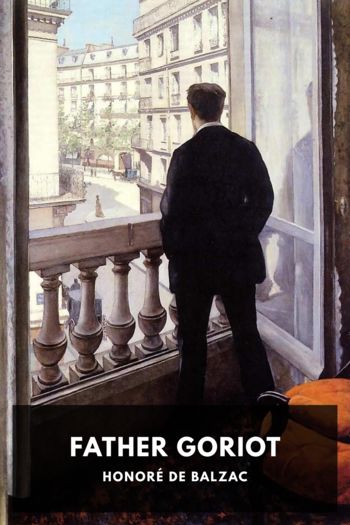Father Goriot by Honoré de Balzac (books to read for beginners txt) 📕

Description
Father Goriot, today considered one of Balzac’s most important works, is part of his novel sequence The Human Comedy. It’s the first of Balzac’s novels to feature recurring characters, a technique that he famously developed in his subsequent novels.
Set in Paris during the Bourbon Restoration of the early 1800s, Father Goriot follows Eugène de Rastignac, a student born to noble roots but little means, as he tries to climb the social ladder in Paris. The impoverished Goriot is staying at the same boardinghouse as Rastignac—and Rastignac sees opportunity in Goriot’s richly-married and elegant daughters.
The novel has been widely praised for its realist portrayal of Parisian life of various social classes, and its deep influence on French literature is still felt today. While it had chapter breaks when it was initially serialized, Balzac removed them when compiling his definitive edition of The Human Comedy, a change that is preserved in this edition.
Read free book «Father Goriot by Honoré de Balzac (books to read for beginners txt) 📕» - read online or download for free at americanlibrarybooks.com
- Author: Honoré de Balzac
Read book online «Father Goriot by Honoré de Balzac (books to read for beginners txt) 📕». Author - Honoré de Balzac
He was silent for a moment, and looked round at the lodgers’ faces.
“What dolts you are, all of you! Have you never seen a convict before? A convict of Collin’s stamp, whom you see before you, is a man less weak-kneed than others; he lifts up his voice against the colossal fraud of the Social Contract, as Jean Jacques did, whose pupil he is proud to declare himself. In short, I stand here single-handed against a Government and a whole subsidized machinery of tribunals and police, and I am a match for them all.”
“Ye gods!” cried the painter, “what a magnificent sketch one might make of him!”
“Look here, you gentlemen-in-waiting to his highness the gibbet, master of ceremonies to the widow” (a nickname full of sombre poetry, given by prisoners to the guillotine), “be a good fellow, and tell me if it really was Fil-de-Soie who sold me. I don’t want him to suffer for someone else, that would not be fair.”
But before the chief had time to answer, the rest of the party returned from making their investigations upstairs. Everything had been opened and inventoried. A few words passed between them and the chief, and the official preliminaries were complete.
“Gentlemen,” said Collin, addressing the lodgers, “they will take me away directly. You have all made my stay among you very agreeable, and I shall look back upon it with gratitude. Receive my adieux, and permit me to send you figs from Provence.”
He advanced a step or two, and then turned to look once more at Rastignac.
“Goodbye, Eugène,” he said, in a sad and gentle tone, a strange transition from his previous rough and stern manner. “If you should be hard up, I have left you a devoted friend,” and, in spite of his shackles, he managed to assume a posture of defence, called, “One, two!” like a fencing-master, and lunged. “If anything goes wrong, apply in that quarter. Man and money, all at your service.”
The strange speaker’s manner was sufficiently burlesque, so that no one but Rastignac knew that there was a serious meaning underlying the pantomime.
As soon as the police, soldiers, and detectives had left the house, Sylvie, who was rubbing her mistress’ temples with vinegar, looked round at the bewildered lodgers.
“Well,” said she, “he was a man, he was, for all that.”
Her words broke the spell. Everyone had been too much excited, too much moved by very various feelings to speak. But now the lodgers began to look at each other, and then all eyes were turned at once on Mlle. Michonneau, a thin, shriveled, dead-alive, mummy-like figure, crouching by the stove; her eyes were downcast, as if she feared that the green eyeshade could not shut out the expression of those faces from her. This figure and the feeling of repulsion she had so long excited were explained all at once. A smothered murmur filled the room; it was so unanimous, that it seemed as if the same feeling of loathing had pitched all the voices in one key. Mlle. Michonneau heard it, and did not stir. It was Bianchon who was the first to move; he bent over his neighbor, and said in a low voice, “If that creature is going to stop here, and have dinner with us, I shall clear out.”
In the twinkling of an eye it was clear that everyone in the room, save Poiret, was of the medical student’s opinion, so that the latter, strong in the support of the majority, went up to that elderly person.
“You are more intimate with Mlle. Michonneau than the rest of us,” he said; “speak to her, make her understand that she must go, and





Comments (0)